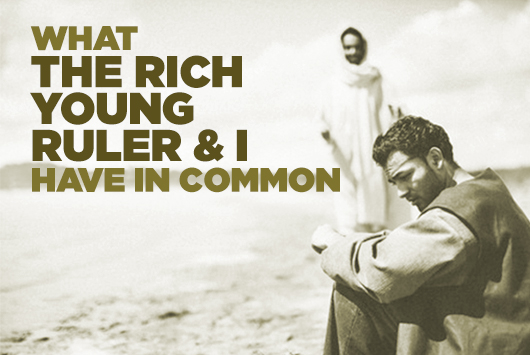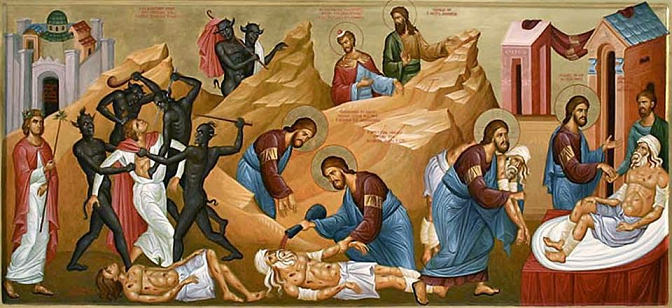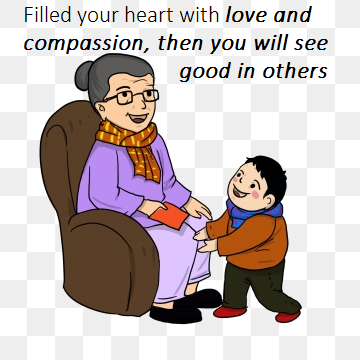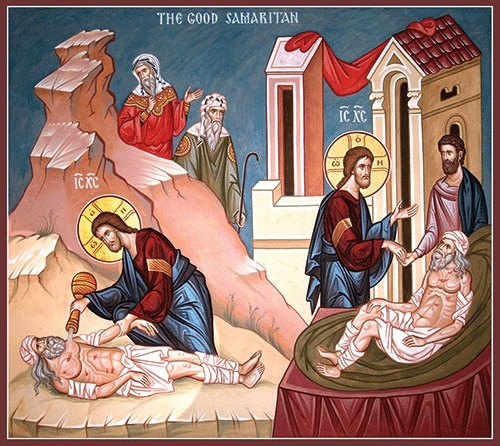15th Sunday in Ordinary Times
Deut.30:10-14; Psalm 68: 14.17.30-31.33-34.36-37; Col. 1:15-20; Gospel of Luke 10:25-37

Preached by Msgr Philip Heng, SJ at Cathedral of Good Shepherd, Singapore on 14 July 2019
There is a story of a very stingy person Jack who, one day struck the lottery of $3m dollars, but he didn’t know about it. His family was very concerned that if Jack were to come to know about the lottery win, his weak heart would not be able to take the news, and he may die of a heart attack. So, one day, Jack’s wife told his children, I know what we can do to tell dad what happened. He is very close to the parish priest, Fr Bob. We can ask Fr Bob to tell him the news in a very discreet manner. Everyone agreed.
So, Fr Bob, invited Jack over to his Rectory for a drink and told him, “Jack, what if you won the $3m lottery, what would you do with the money?” “Oh,” Jack immediately replied, “Fr Bob, I will donate $2m of the winnings to the Church building fund.” Fr Bob was so shocked, that he fell off his chair and died of a heart attack.” Considering how stingy Jack is, we could say that Fr Bob died of a “charity shock”; the news was too good to be true!”
My brothers and sisters in Christ, the Good Samaritan in the parable of today’s Gospel, is also a “shocking, too good to be true story.” Why is this so can be seen more clearly if we look at the background and details of the parable.

In the Parable of the Good Samaritan today, let us remember that the city of Jericho is close to the Dead Sea and is below sea level. Jerusalem on the other hand is in the hill country. The route from Jerusalem to Jericho is quite steep and dangerous. There are no settlements or towns along the way; instead there are many of caves and hideouts.
Moreover, the Samaritans and the Jews were great enemies. Some commentators say that a Jew would consider a non-Jew like the Samaritan, as only fit to be thrown into fires for fuel. And so, it is not only a great surprise, but somewhat shocking to expect a Samaritan to reach out and risk his own life, and reach out to care for a dying enemy in such a lonely and dangerous place.
We know from the Gospel, that when the Good Samaritan saw the dying Jew, he was moved with deep compassion. So, he went up and bandaged his wounds, pouring oil and wine on them, lifted him on to his donkey and brought him to an innkeeper, whom he knew, to look after the dying man. Being a righteous man and one of great integrity, he paid the innkeeper two denarii in advance. These two denarii are equivalent to full days of wages, and is enough to cover the food and lodging expenses for some two weeks. He then assured the innkeeper that upon his return he would make up for the excess expenses incurred the care of the wounded traveller.

My sisters and brothers in Christ, at this juncture, let us ask ourselves, “Would we go out of our way to help a poor stranger who is in need of help so generously and selflessly? In all probability some of us would, but most of us would hesitate and decline. But, would we like this Good Samaritan, care and serve so generously and selflessly if that person is our enemy? If our immediate reaction is that we would not, then let us remember that in preaching today’s Parable of the Good Samaritan, Jesus is precisely trying to tell you and I that if we wish to be His disciple, then our compassion for those in need must be as Christ-like as we can, without prejudice, self-interests and conditions, like caring and serving people, only if they themselves first care and love us.
Jesus in the Gospel proclaims, “If you only love those who love you, what reward do you expect? Even the tax collectors and sinners do that, do they not? You would already have gained your reward on earth.” What then is Jesus’ expectations of the type of love that we are to show, to gain eternal life?

This is precisely the lawyer’s question at the beginning of today’s Gospel when he asked Jesus, “Master, what must I do to inherit eternal life?” Jesus then asked him, “What is written in the law? What do you read there? He replied, “You must love the Lord your God with all your heart, with all your soul, with all your strength, and with all your mind, and your neighbour as yourself.” Jesus was happy with the answer and replied, you have answered right; do this” and you will (gain eternal life that you long for.) But, then the lawyer remained anxious and wanted to justify the self-centred way he was living and asked Jesus, “And, who is my neighbour?”
My brothers and sisters in Christ, the lawyer in the parable is a good man who desires to gain eternal life after he dies. However, his love for God was conditional and secondarily only to his needs and self-love. In other words, he is willing to love God and others, provided it is convenient for him, provided it does not demand too much from him and provided it all his personal and family needs are first taken care of.

And this was precisely what happened to the priest and the Levite in the parable. In all probability, like the lawyer in the parable, they too were good people. However, their love was conditional, and not the unconditional love that Jesus preaches. As a Jew who come across a fellow Jew who is robbed, bleeding and dying, we would expect that they would reach out to him and help him. However, they were more concerned about their own safety, needs and convenience.
As such, they justified to themselves according to the Jewish restrictions of the ritualistic laws, which prescribes that if they were to come into contact with a dead or dying person, they would need to undergo seven days of ritual purification in the Temple. Considering and concluding that, that would be too much inconvenience for them, they conveniently walked away on the other side of the road, and left the fellow Jew to die in the wilderness.
My sisters and brothers is Christ, let us remind ourselves again. The lawyer at the beginning of the Parable asked Jesus, “Master, what must I do to inherit eternal life” but, ended up being sad, and having to leave Jesus; Jesus too was sad for the good man. As a good man who desires eternal life, he was experiencing inner conflicts and struggles at Jesus’ explanation of the parable of the Good Samaritan that demands, that our love for God must be shown concretely in our unconditional love for our neighbour, including our enemies. The good man was sad because he realises that his love for himself is more important than loving God, and should there be a conflict or a choice a good and a greater good, he would rather love himself at the expense of caring for the needs of others.
 My brothers and sisters in Christ, like the lawyer in today’s Gospel parable, you and I too desire to gain eternal life after we die. However, a good question we need to ask ourselves today is, “Like the lawyer, why is it so difficult to love God generously and selflessly? Why are we so prejudiced and conditional when it comes to loving others? Why is our self-love so strong and dominating, and at the expense of our growth in the Christ-like love that Jesus proclaims; so that we can all become more like the “Good Samaritan”?
My brothers and sisters in Christ, like the lawyer in today’s Gospel parable, you and I too desire to gain eternal life after we die. However, a good question we need to ask ourselves today is, “Like the lawyer, why is it so difficult to love God generously and selflessly? Why are we so prejudiced and conditional when it comes to loving others? Why is our self-love so strong and dominating, and at the expense of our growth in the Christ-like love that Jesus proclaims; so that we can all become more like the “Good Samaritan”?
There is a story of a little boy, who said to his granny, “Granny, when I get older, I want to wear your glasses so that I can see so much more in people that you see. Granny, how is it that you can see the good in a person, when others seem to see only the bad and the negative? Granny, you can also see the good that a person could have done, but did not do.”
Granny smiled at her grandson and said, “My dear child, we see what we want to see in others. A lot of what we “see” in others and wish to see in others depend on what we have in our hearts. If our hearts are filled with love and compassion, then we will see the good in others. But, if our hearts are filled with our own selfish needs, greed and pride, then our hearts will never see the needs and the good in others, but only the bad and the negative in them.
My sisters and brothers in Christ, if our hearts are not deeply compassionate for people who are suffering, then it is easy for us to justify our actions of not reaching out to them. We would inevitably fall into the temptations of our justification and our cold logic of justice and prejudices, and become over protective of our self and end up not willing to be inconvenienced, or make the sacrifices, or expose ourselves to the risks that are needed in reaching out to people in need. We would then be no better than the priest and Levite in today’s Gospel parable.
 As such, we are not to be too quick in judging the priest and the Levite for not reaching out to the dying traveller. Let us also remind ourselves that we too can very easily fall into the same narrow perception of people who are in desperate needs, and then also walk away, instead of reaching out to them.
As such, we are not to be too quick in judging the priest and the Levite for not reaching out to the dying traveller. Let us also remind ourselves that we too can very easily fall into the same narrow perception of people who are in desperate needs, and then also walk away, instead of reaching out to them.
The wounded and dying traveller is perhaps a good symbol of the people who are suffering around us and are crying for help: these people can be the very people who live with and are in our homes and family viz. our aged, sickly and demented parents, a friend in need, and also those whom we reject and marginalise in our secular society like the migrant workers, the refugees, the dying and the poor and the needy; they are lonely, depressed, exploited, abused and constantly living in fear of being killed in wars, and without any bright future, die of hunger and disease.
We are aware that taking care of the needs of others is never easy, and can be a very heavy cross to carry. However, you and I are called to ask God for the graces to be more like the Good Samaritan of the Parable of the Gospel, and be more Christ-like in our compassionate love for others, and not justify our selfish and self-centred deeds, like the priest and the Levite in the Parable.
 My sisters and brothers, as I conclude, let us remind ourselves that if we call ourselves, disciples of Jesus in today’s world then you and I are called to be more like the Good Samaritan, in the way we live our lives. The words of wisdom of granny in our story are good advice for us, when she said, “A lot of what we “see” in others and wish to see in others depend on what we have in our hearts. If our hearts are filled with love and compassion, then we will see the needs and good in others. But, if our hearts are filled with our own selfish needs, greed and pride, then our hearts will not have compassion for the needs of others and will see the bad and the negative in them.”
My sisters and brothers, as I conclude, let us remind ourselves that if we call ourselves, disciples of Jesus in today’s world then you and I are called to be more like the Good Samaritan, in the way we live our lives. The words of wisdom of granny in our story are good advice for us, when she said, “A lot of what we “see” in others and wish to see in others depend on what we have in our hearts. If our hearts are filled with love and compassion, then we will see the needs and good in others. But, if our hearts are filled with our own selfish needs, greed and pride, then our hearts will not have compassion for the needs of others and will see the bad and the negative in them.”
When the Good Samaritan reached out to the dying man, his compassion transcended the social views of the Jewish society that treated him as an enemy because he was a Samaritan; a non-Jew. His compassionate care led him to respond to the urgent need of saving the life of the wounded man. And he did this regardless of the risk he had to take in stopping by in the lonely wilderness to care for the dying man. He was also selflessly sincere; he poured oil and wine and bandaged his wounds and brought him to the inn for his further recovery.
Most of all in all these, we are called to imitate Jesus our Lord, whose Compassionate Love for us, not only cares for us, but willingly suffered and died for us, just so that we can all receive the gift of eternal life. Let us seek God’s strength to live more wholeheartedly like Jesus, and if our hearts are truly sincere, the Holy Spirit will always give us the needed strength and wisdom to live His Father’s Will. The choice is ours.
Msgr Philip Heng, S.J.

